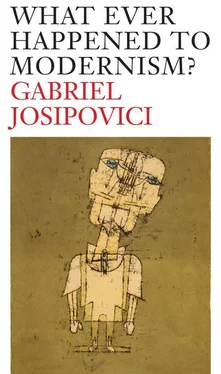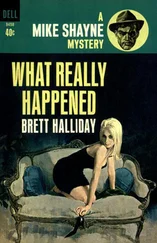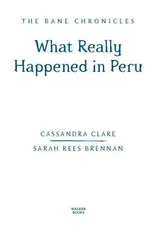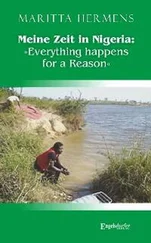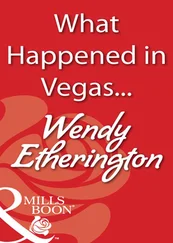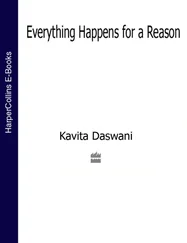page 28 , ‘Idle reader …’ Miguel de Cervantes, Don Quixote , tr. Edith Grossman, Secker & Warburg, London, 2004, p.3.
page 29 , ‘I picked up my pen …’ ibid. , p.4.
page 30 , ‘Somewhere in La Mancha …’ ibid. , pp.19–20.
page 31 , ‘so convinced in his imagination …’ ibid. , p.21.
page 32 , ‘having given a name …’ ibid. , p.23.
As Marthe Robert points out …: L'Ancien et le nouveau: De don Quichotte à Franz Kafka , Payot, Paris, 1963, p.138ff.
The standard view of the novel …: Adam Thirlwell, Miss Herbert , Jonathan Cape, London, 2007, pp.68–70.
one of the first episodes …: Don Quixote , Part I, chs iv and xxxi.
page 33 , ‘the juxtaposition of chivalrously good intentions …’ Thirlwell, op.cit. , p.70.
page 35 , ‘Don Quixote was charging …’ Don Quixote , tr. Edith Grossman, op.cit. p.64.
‘In part one of this history …’ ibid. , p.65.
page 36 , ‘in this account …’ ibid. , pp.68–9.
page 37 , ‘is not, like the Homeric bard …’ Robert, op.cit. , p.112–13.
‘What differentiates the novel …’ ‘The Story-teller’, in Illuminations , tr. Harry Zohn, Jonathan Cape, London, 1970, pp.87–8.
page 40 , ‘Among the eminent persons …’ ‘Napoleon; Or, the Man of the World’, in Selected Essays , ed. Larzer Ziff, Penguin, Harmondsworth, 1982, p.337.
‘In the plenitude …’ ibid. , p.344.
page 42 , In a wonderful passage … Mann, op.cit. , p.185.
page 44 , ‘whereas anxiety …’ The Concept of Anxiety , ed. and tr. Reidar Thomte with Albert B. Anderson, Princeton University Press, 1980, p.42.
‘anxiety is the dizziness …’ ibid. , p.61.
page 45 , ‘a self that has no possibility …’ The Sickness Unto Death , tr. Alastair Hannay, Penguin, Harmondsworth, 2004, p.65.
page 46 , ‘for without possibility …’ ibid. , p.69.
‘It is a psychological master-stroke …’ ibid. , pp.139, 143.
page 47 , ‘What is masterly …’ ibid. , p.143.
‘If one wants to compare …’ ibid. , p.68.
page 49 , Dr Johnson's criticism of Milton …: ‘Life of Milton’, in The Works of Samuel Johnson , G. Walker, London, 1820, vol. XI, p.152.
Geoffrey Hartman has noted …: ‘Wordsworth, Inscriptions and Romantic Nature Poetry’, in Beyond Formalism: Literary Essays 1958–70 , Yale University Press, New Haven, CT and London, 1970, pp.206, 224.
‘each picture …’ Joseph Leo Koerner, Caspar David Friedrich and the Subject of Landscape , Yale University Press, New Haven, CT and London, 1990, p.9.
page 50 , ‘Before Friedrich …’ ibid. , p.13.
A good example …: For all Wordsworth's poetry and prose I use the one-volume Oxford edition, The Poetical Works of Wordsworth , ed. Thomas Hutchinson, revised by Ernest de Selincourt, in the 1959 reprint. Since I give the titles or (when there is none) the first line in the body of the text I dispense with page references here.
page 58 , ‘For it is something …’ von Hofmannsthal, op.cit. , p.10.
page 60 , ‘ Wanderer Above the Sea of Fog …’ Koerner, op.cit. , p.187.
page 62 , ‘In the framed nothingness …’ ibid. , p.96.
page 66 , Isaiah Berlin once called Verdi …: ‘The “ Naïveté ” of Verdi’, in Against the Grain: Essays in the History of Ideas , ed. Henry Hardy, Pimlico, London, 1997, pp.287–95.
I think John Bayley puts …: ‘ Oliver Twist : “Things As They Really Are”’, in John Gross and Gabriel Pearson (eds), Dickens and the Twentieth Century , Routledge & Kegan Paul, London, 1962, partly reprinted in Charles Dickens , ed. Stephen Wall, Penguin Critical Anthologies, Harmondsworth, 1970. The quotes are on pp.442–3 of this book.
page 67 , ‘One evening …’ Søren Kierkegaard, On Authority and Revelation , tr. Walter Lowrie, Harper & Row, New York, 1966, p.69
page 68 , ‘For it is one thing …’ ibid. , pp.3–4.
page 69 , ‘Among the so-called negative thinkers …’ Concluding Unscientific Postscript , tr. David F. Swenson and Walter Lowrie, Princeton University Press, 1968, p.78.
page 70 , ‘Are you fond of …’ Charles Dickens, Oliver Twist , ed. Philip Horne, Penguin, London, 2003, p.90.
page 71 , ‘When your brother …’ ibid. , p.412.
‘The Elector called out …’ ‘Michael Kohlhaas’, in The Marquise of O — and Other Stories , tr. Martin Greenberg, Criterion, New York, 1960, p.182.
page 73 , ‘Never can dreams…’ Dreamtigers , tr. Mildred Boyer and Harold Morland, Souvenir, London, 1973, p.24. The poem is on page 70.
Hamm in Beckett's Endgame …: Samuel Beckett, Endgame , Faber, London, 1958, pp.35–7.
page 74 , ‘Actuality cannot be conceived …’ Papers and Journals: A Selection , tr. Alastair Hannay, Penguin, Harmondsworth, 1966, p.470.
‘But it's not dead …’ Samuel Beckett, ‘Dante and the Lobster’, in More Pricks than Kicks , Calder & Boyars, London, 1974.
page 77 , ‘Is a new beginning …’ T.S. Eliot, Four Quartets , ‘East Coker’, Part V in The Complete Poems and Plays Faber, London, 1970.
page 78 , ‘The invaluable works …’ Wordsworth, op.cit. , p.735. The whole passage is worth re-reading with Kierkegaard's comments in mind.
‘Then he meets …’ J.D. Salinger, The Catcher in the Rye , Penguin, Harmondsworth, 1977, p.125.
page 79 , ‘Is that what illustration …’ David Sylvester, Interviews with Francis Bacon , Thames and Hudson, London, 1975, pp.99–100. The other quotations in this paragraph are on pp.17 and 63–4.
page 80 , ‘that cruel tense …’ ‘Journées de lecture’, in Contre Sainte-Beuve , ed. Pierre Clarac and Yves Sandre, Pléiade, Paris, 1971, p.170.
‘Through its passé simple …’ Roland Barthes, Le Degré zéro de l'écriture , Seuil, Paris, 1953, pp.30–1.
page 81 , quoted by André Breton …: Manifeste du Surréalisme (1924), in André Breton, Manifestes du Surréalisme , Gallimard, Paris, 1972, p.18. The passage runs: ‘… Paul Valéry qui, naguère, à propos des romans, m'assurait qu'en ce qui le concerne, il se refuserait toujours à écrire: La marquise sortit à cinq heures ’.
page 82 , ‘The way old Freddie …’ P.G. Wodehouse, Young Men in Spats , Penguin, Harmondsworth, 1971, p.8.
In Borges' story …: in Jorge Luis Borges, Labyrinths , ed. Donald A. Yates and James E. Irby, New York, 1964, pp.76–87
page 84 , In ‘The Garden of Forking Paths’ …: ibid ., pp.19–29.
In ‘Tlön, Uqbar, Orbis Tertius’ …: ibid. , pp.3–18.
Borges' most famous story …: ibid. , pp.36–44.
page 86 , Malcolm Bowie …: Mallarmé and the Art of Being Difficult , Cambridge, 1978, p.8.
Anthony Hartley provides this plain prose translation in his The Penguin Book of French Verse: The Nineteenth Century , Harmondsworth, 1957, p.197: ‘The virginal, living, and beautiful day, will it tear for us with a blow of its drunken wing this hard, forgotten lake haunted beneath the frost by the transparent glacier of flights that have not flown? A swan of long ago remembers that it is he, magnificent but freeing himself without hope, for not having sung the country to live in, when the tedium of sterile winter shone. His whole neck will shake off this white agony inflicted by space on the bird that denies it, but not the horror of the earth where his feathers are caught. A phantom condemned to this place by his pure brilliance, he stays motionless in the cold dream of scorn worn in his useless exile by the Swan.’
Читать дальше
